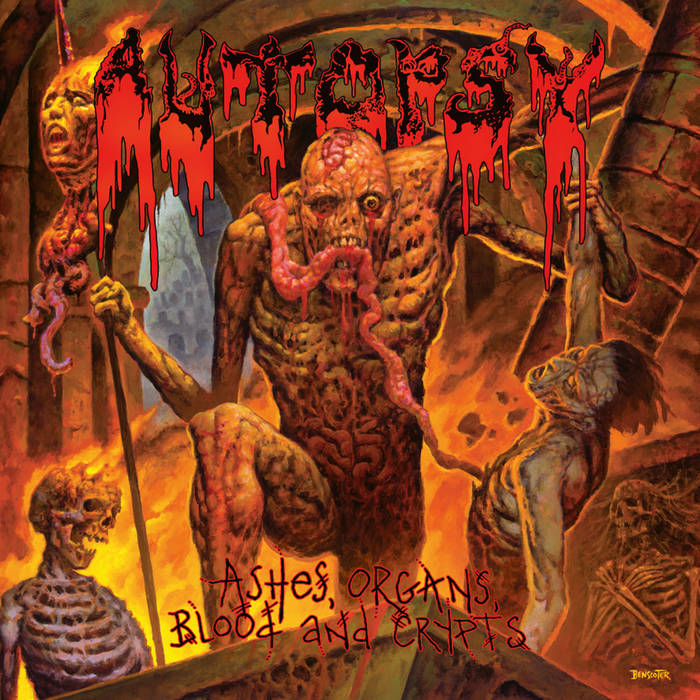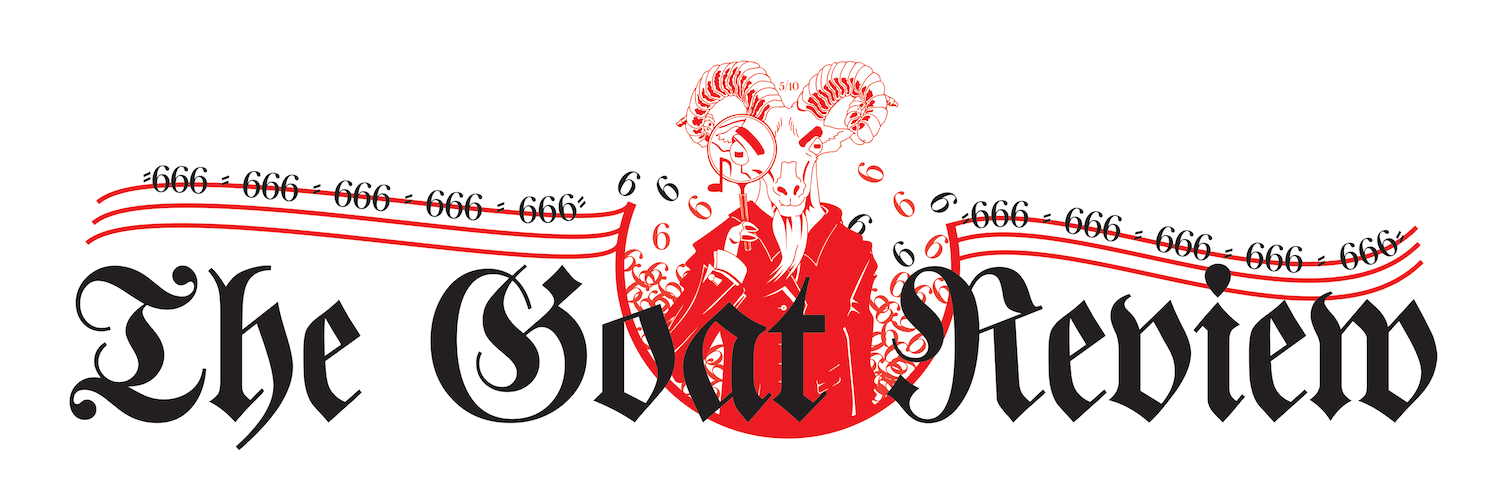
Autopsy have a new album and it is time for me to, yet again, praise the band for doing the things I would criticize other acts for. Not only does the band stick to what they’re known for, what they themselves know best, but this time they’ve shoved an album out the door quickly. Ashes, Organs, Blood and Crypts comes out barely a year after Morbidity Triumphant, an album that managed to worm its way into my honorable mentions for 2022. With such a short turn, I would expect almost any band to deliver something half-assed, an attempt to remain relevant while the memory of an album many consider a return to their best form (Autopsy never really had become bad, though). Ashes, however, manages even more of a return to form than its predecessor, a threat to out me as a hypocrite if I can’t prove that Autopsy actually has made another good album.
 Ashes, Organs, Blood and Crypts isn’t an exact retread of 2022’s Morbidity Triumphant, which focused on the more aggressive side of Autopsy‘s sound—for lack of better words, their more Death Metal oriented side. It feels strange to say this about one of the originators of the style, but Autopsy have always had strong undertones of the roots of Heavy Metal and a noticeable Black Sabbath influence while being an enjoyable relic that’s also quintessentially Death Metal. But throw in some good old dirty Punk Rock (really dirty in some cases) for good measure and you have an early interpretation of Death Metal that doesn’t run contrary but parallel to the normal association. Ashes seems to focus more on this classic Heavy Metal influence more than a lot of their more recent material, with groovy, blues tinged Doom featuring heavily throughout. This comes with the perks of an increased bass presence and a vocal performance that is dirtier and more expressive. Particularly Greg Wilkinson’s bass work seems well involved, often filling out available space with jangly scales and patterns, a freeform expression that hasn’t appeared on an Autopsy record in a long while. Founding drummer and vocalist Chris Reifert, meanwhile, isn’t afraid to ham it up, dedicating 30 seconds of plain coughing on “Toxic Death Fuk”.
Ashes, Organs, Blood and Crypts isn’t an exact retread of 2022’s Morbidity Triumphant, which focused on the more aggressive side of Autopsy‘s sound—for lack of better words, their more Death Metal oriented side. It feels strange to say this about one of the originators of the style, but Autopsy have always had strong undertones of the roots of Heavy Metal and a noticeable Black Sabbath influence while being an enjoyable relic that’s also quintessentially Death Metal. But throw in some good old dirty Punk Rock (really dirty in some cases) for good measure and you have an early interpretation of Death Metal that doesn’t run contrary but parallel to the normal association. Ashes seems to focus more on this classic Heavy Metal influence more than a lot of their more recent material, with groovy, blues tinged Doom featuring heavily throughout. This comes with the perks of an increased bass presence and a vocal performance that is dirtier and more expressive. Particularly Greg Wilkinson’s bass work seems well involved, often filling out available space with jangly scales and patterns, a freeform expression that hasn’t appeared on an Autopsy record in a long while. Founding drummer and vocalist Chris Reifert, meanwhile, isn’t afraid to ham it up, dedicating 30 seconds of plain coughing on “Toxic Death Fuk”.
So, am I a hypocrite for liking Autopsy despite a complete lack of innovation? Frankly, no. Normally I’d say that if a band refuses to evolve and explore new territory, there has to be flawless execution. But it’s worth noting that Autopsy over the course of their career has rarely been imitated, which helps their music grow less stale. Still Autopsy deliver small bits of innovation, and more importantly they are able to write their songs exactly how they should be at this point. Similar to the aged Cirith Ungol, who also released an album this year, Autopsy is a skilled band that has not been gifted the same level of success as similar classic acts, which helps them be hungry and committed in their reunited state. Maybe more bands should take a break.
